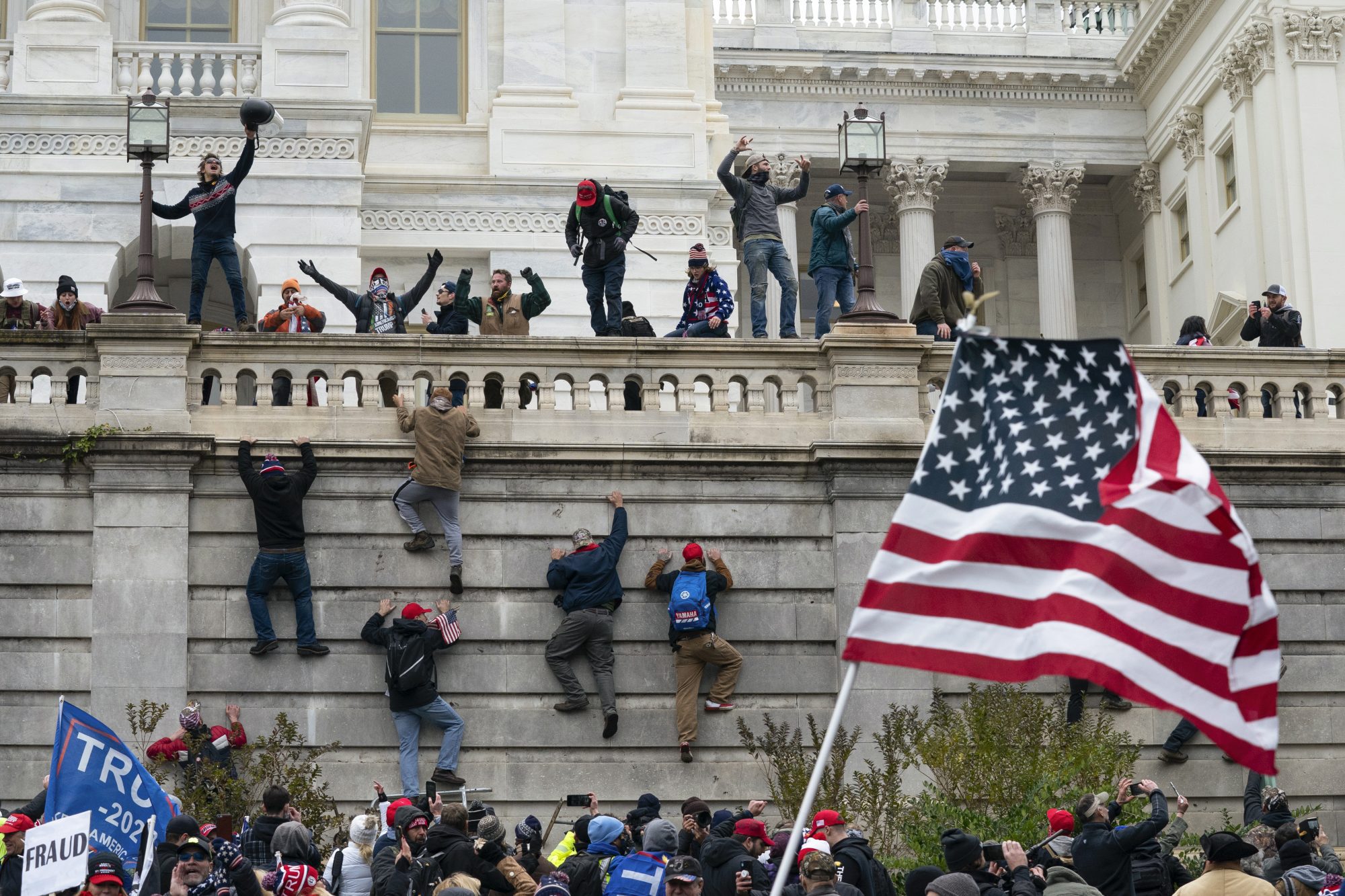One year ago today, Americans saw their afternoon soap operas and talk shows vanish from television screens to be replaced with screaming, flag-waving fellow Americans assaulting the United States Capitol like pillagers in a Medieval siege.
The scenes that played out on television and computer screens into the early hours of Jan. 7, 2021 eclipsed any drama a Hollywood screenwriter could concoct: Rampagers scaling the Capitol walls; Capitol Police officers pointing guns at the doors of the U.S. House of Representatives as the crowd surged against them; members of Congress donning gas masks and cowering under chairs; Republicans downplaying the assault hours after they ran for their lives escorted by Capitol Police.
Did we, as people living in a democracy and, presumably, participating in keeping our democracy alive, learn anything from Jan. 6, 2021?
Why were thousands of mostly white, young-to-middle-aged men motivated to descend on Washington, D.C. from communities across America and violently attack the Capitol, teeming with blood-lust and waving flags emblazoned with the name of the president of the United States?
The obvious, widely agreed-upon answer is that Donald J. Trump convinced them that a “stolen” election resulted in his narrow loss to President Joseph R. Biden Jr., and that the only remedy — proclaimed by Trump in a public rally that preceded the assault — was to storm Congress and stop its members from making Biden’s win official.
Five people died a year ago at the U.S. Capitol, including a police officer who sustained head injuries, and an Air Force veteran who was shot to death by police.
It is disheartening to read that out of the thousands of people who assaulted the Capitol, only 700 people were arrested, and a mere 150 have pleaded guilty to crimes.
Trump canceled a press conference scheduled for today, rescheduled it for Jan. 15, and called the congressional investigation into the Capitol assault “total bias and dishonesty.”
But I return to my previous question: How has Jan. 6, 2021 changed us as Americans? Has COVID-19’s seemingly-relentless grip on our lives forced us to make tradeoffs on our conscience and relegate Jan. 6 to a corner of our minds? Are the images of anarchy and unbridled rage aimed at the U.S. Capitol — our symbol of national stability — too difficult for most of us to fully face?
I’ve spent all but a few of my working years in journalism and covered politics for decades. You don’t need to tell me that Americans have grown disgusted with politics and with the media.
Mark Zuckerberg will assure you that many of us will snap up Doomsday portents splashed across social media with a much heartier appetite than the one we have for subscribing to and reading newspapers and magazines.
Trump — the non-politician, the bankruptcy-prone billionaire, the prime-time-TV carnival barker — understood in 2016 better than anyone else running for president that Americans had soured on politicians and the media. He mowed down Ted Cruz, Marco Rubio and their ilk like a scythe whisking through ripe wheat.
He outsmarted the media at its own game and made Twitter — not television — his campaign platform.
America one year after Jan. 6 seems frozen in place. The vast majority of us — if such a majority still exists — seems unwilling to completely repudiate the violence and rage of a year ago. We seem to want to consign the rampage and its horrible images to a dark place.
I think most people see Trump for what he is — a self-serving, self-promoter who proclaims, “Make America great again,” but who lacks any grasp of American history or understanding of global politics to put that slogan into action.
I also think most of us are appalled and repelled by what happened on Jan. 6. What kind of Americans attack police officers? How can you grow up in the United States thinking a violent assault on the nation’s place of governance is a pathway to change?
I shy away from delving too deeply into the rage and frustration that fueled last year’s assault and abhor contemplating for too long the messianic hold that someone as shallow as Trump (the man who disrespected American war hero John McCain) has on his followers.
If COVID-19 somehow, in some way, manages to give us a break, maybe then we can sort out our differences and discover a shared national inspiration in a political landscape where the distinguishing features are a gridlocked Congress and political parties lacking leaders-in-the-making.
Until then, Jan. 6 is a cautionary tale, or a warning of darker times to come.

